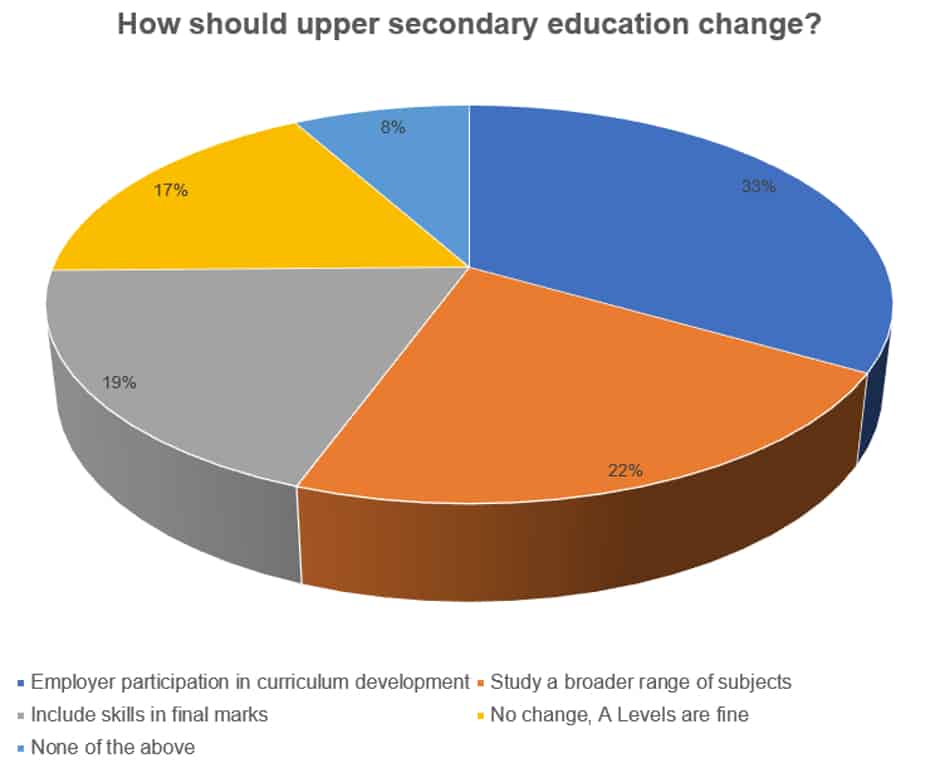
Should A Levels be replaced with a new form of qualification that gives young people the broad range of skills they’ll need in a rapidly changing workplace?
They should, according to Venki Ramakrishnan, President of the Royal Society, who last week delivered an address setting out the case for an independent review into post-16 learning during the next parliament.
In Ramakrishnan’s view, the review should feed into a transformation in schools that reflects the changing nature of a technology-driven jobs market.
According to the Royal Society, four out of five businesses expect to increase the number of high-skilled roles, but two thirds are concerned there will be a lack of sufficiently skilled people to fill them. They add that from ages 16 to 18, young people’s education should broaden to help develop transferable skills including communication, problem solving, and team work.
So how should upper secondary education change to accommodate the needs of employers? According to a third (33 per cent) of last week’s 500 poll respondents, those very employers should participate in curriculum development, followed by 22 per cent who think a broader range of subjects should be studied.
Just under a fifth (19 per cent) thought skills should be included in final marks, closely followed by 17 per cent who thought A Levels to be adequate and not in need of changing. The remaining eight per cent opted for the ‘none of the above’ options.
As we’ve come to expect at Engineer Towers, a healthy debate follows any discussion about skills and education and comments received so far reflect that trend.
Of those that focussed solely on A Levels, Scott asked: “Have A-levels ever equipped young people with the skills they’ll need in the workplace?”
“A-Levels are not supposed to set you up for a job, they are a base to expand off,” added Adam Smith. “Maybe the employers should stop expecting a “school kid” to be ready at first to do the job you want them too.”
On a similar theme, A Digby, CEng, said: “Young people today are hardly in a position to know what they want to do when at Uni, let alone make life determining choices about what to study (and therefore what life steer to take) when at any level prior to Uni. The ‘A’ levels get them into Uni and the Uni (hopefully) gets them into gainful employment in their chosen area of work.”
What do you think? The debate continues in Comments below.
Comments are moderated and The Engineer’s guidelines for comments can be found here.





Glasgow trial explores AR cues for autonomous road safety
They've ploughed into a few vulnerable road users in the past. Making that less likely will make it spectacularly easy to stop the traffic for...